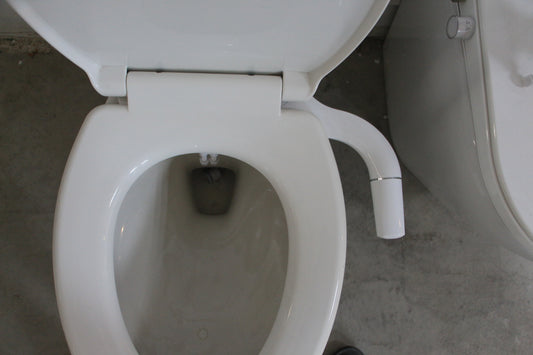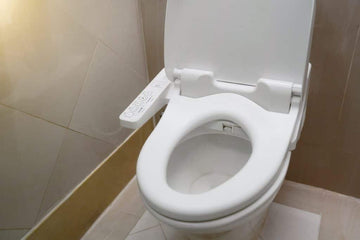In recent years, the use of bidets has surged in popularity, especially among those seeking enhanced personal hygiene. This article delves into the benefits and considerations of bidet use for medical conditions, exploring how this hygiene device is transforming lives and promoting health. As the world becomes increasingly conscious of health and hygiene, understanding the medical implications of bidet usage becomes critical for both individuals and healthcare professionals.

The Rise of Bidets in Modern Hygiene
The bidet is no longer a luxury item reserved for upscale homes or hotels. Its integration into daily life has been spurred by the growing awareness of health benefits, particularly for individuals with specific medical conditions. From its traditional roots in Europe to its modern adaptations globally, the bidet has become a symbol of personal hygiene and care.
For individuals with certain medical conditions, such as hemorrhoids, post-surgical recovery, and urinary tract infections, bidets offer a gentle and effective cleaning option. The bidet's use for medical conditions is supported by its ability to provide a thorough clean without the harshness of toilet paper, reducing irritation and promoting healing.
Medical Conditions Benefited by Bidet Use
1. Hemorrhoids
Hemorrhoids, swollen veins in the lower rectum and anus, can be incredibly uncomfortable and painful. Bidets offer a soothing alternative to toilet paper, minimizing friction and irritation. The gentle water stream cleanses the area effectively, promoting healing and providing relief from symptoms.
2. Post-Surgical Recovery
For those recovering from surgery, maintaining hygiene without causing trauma to the surgical site is crucial. Bidets provide a touch-free cleaning experience, ensuring that the area remains clean and reducing the risk of infection. This is particularly beneficial for patients recovering from colorectal or gynecological surgeries.
3. Urinary Tract Infections
Bidets can play a vital role in preventing urinary tract infections (UTIs). The gentle cleansing action reduces the risk of fecal contamination, a common cause of UTIs. By ensuring thorough cleaning, bidets promote urinary health and help in managing the recurrence of infections.
Environmental Impact and Bidet Use
Beyond personal health benefits, bidets also contribute to environmental sustainability. Traditional toilet paper usage results in significant deforestation and water pollution. Bidets, on the other hand, use minimal water and eliminate the need for paper, making them an eco-friendly alternative. For more on this, visit our insights on the environmental impact of bidets.
Installation and Usage: Making the Transition
Installing a bidet can seem daunting, but modern designs have made the process straightforward and accessible. Whether opting for a standalone bidet or a toilet seat attachment, the transition is seamless. For guidance, read our article on bidet installation without electricity to get started.
Using a bidet is simple and intuitive. Most models allow for temperature and pressure adjustments, catering to individual preferences and medical needs. For tips on optimizing your bidet experience, explore how to adjust the bidet spray.
Challenges and Considerations
While bidets offer numerous benefits, there are considerations to keep in mind. Accessibility for individuals with mobility issues can be a challenge. However, many modern bidets come equipped with remote controls or buttons that make usage easier for those with physical limitations.
Additionally, cultural and personal preferences play a role in the adoption of bidets. Education and exposure can help overcome these barriers, highlighting the health benefits and environmental advantages of bidet use.
The Future of Bidets in Healthcare
As the healthcare industry continues to evolve, the role of bidets in promoting hygiene and health is likely to grow. With advancements in design and technology, bidets are becoming more accessible and adaptable to various needs, paving the way for widespread adoption.
For healthcare professionals, understanding the implications of bidet use for medical conditions is essential. By recognizing the potential benefits and limitations, they can provide informed recommendations to patients, enhancing care and promoting recovery.
Conclusion
The use of bidets for medical conditions represents a significant advancement in personal hygiene and healthcare. From providing relief to patients with specific medical needs to promoting environmental sustainability, bidets are here to stay. For those considering making the switch, the benefits are clear, and the transition is easier than ever. For more personal hygiene tips, check out our zero waste living guide.

FAQ
1. Are bidets hygienic for medical use?
Yes, bidets are highly hygienic, especially for individuals with medical conditions that require gentle and thorough cleaning, such as hemorrhoids and post-surgical recovery.
2. Can bidets prevent urinary tract infections?
Bidets can help reduce the risk of urinary tract infections by ensuring thorough cleaning and minimizing fecal contamination.
3. How do I install a bidet in my bathroom?
Installing a bidet can be simple with modern designs. Consider reading our guide on bidet installation for step-by-step instructions.
This article contains affiliate links. We may earn a commission at no extra cost to you.






